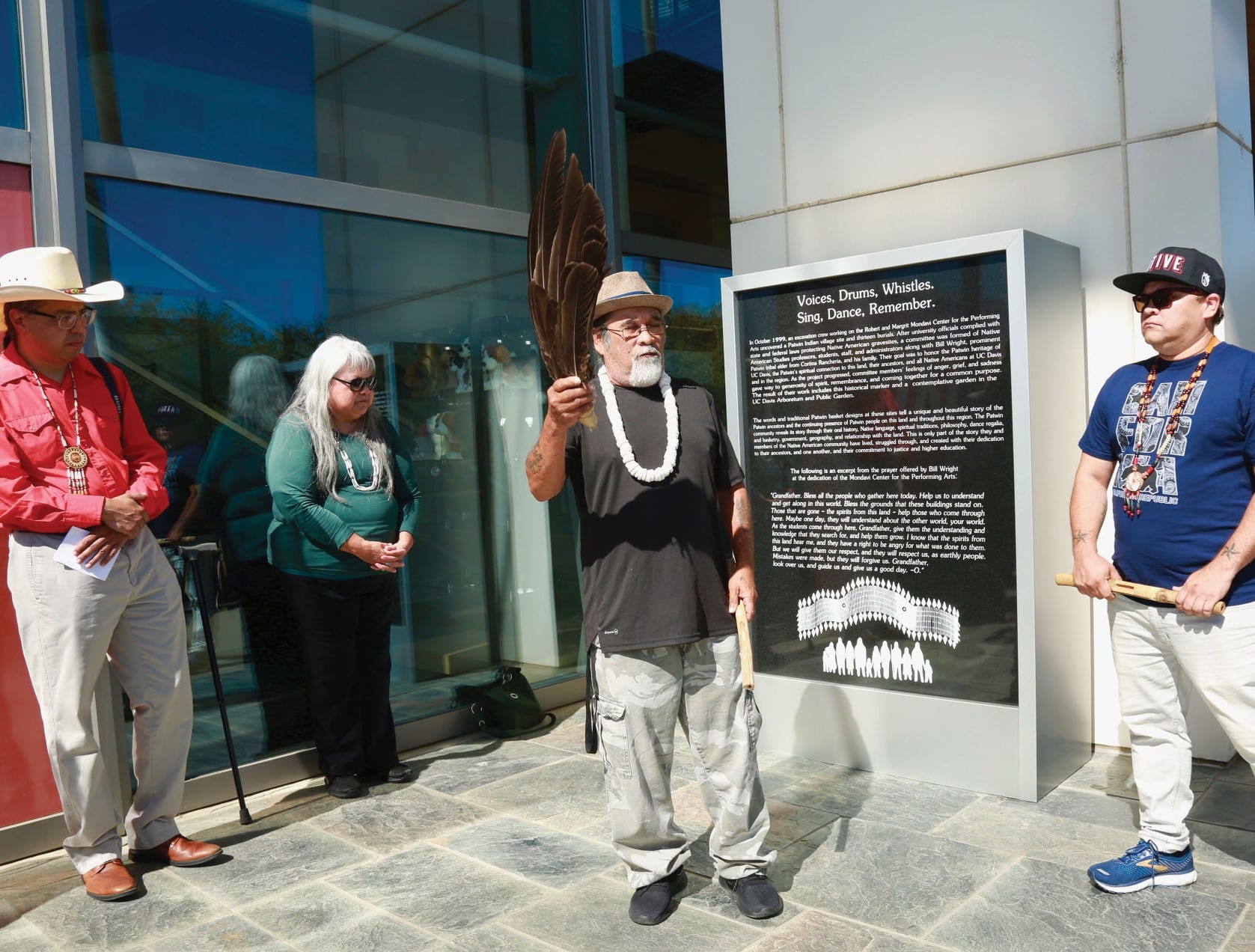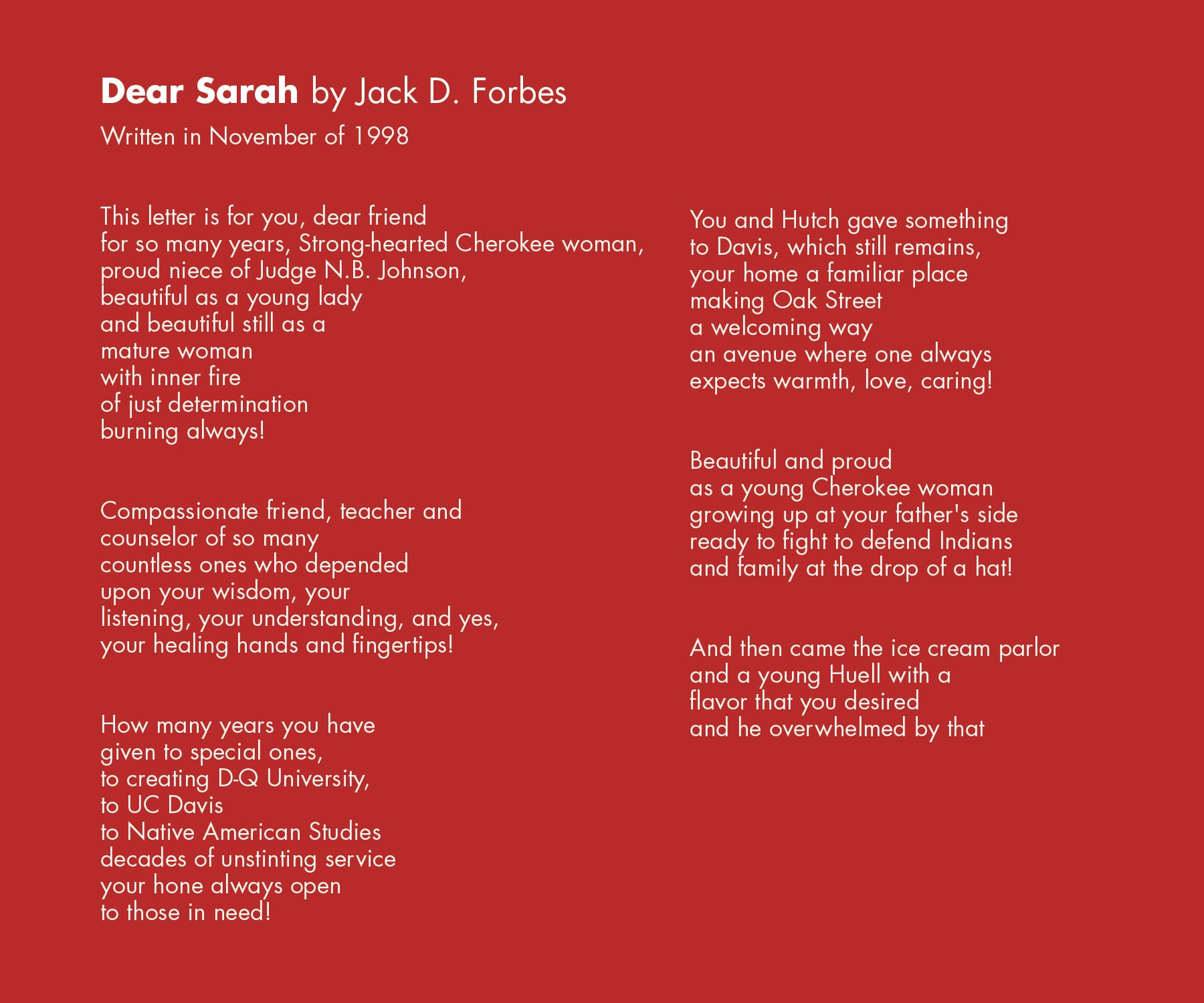UC Davis Native American Studies at 50 Years
The 2019-2020 academic year marks the 50th anniversary of Native American Studies at UC Davis, on the lands of Patwin-Wintun peoples. This interdisciplinary department takes a hemispheric approach to research conducted by, for and with Native communities throughout the Americas and has developed academic and social relationships across and beyond the campus.
This display highlights the foundations, growths and scholarships of the Native American Studies department since its inception, and concludes with current faculty, staff and students (re)imagining the futures of Native American Studies at UC Davis.
About the Exhibit
This exhibit highlights the 50-year growth of Native American Studies at UC Davis. Founded in 1969-70 in the original territories of the Patwin-Wintun peoples, Native American Studies has grown from a small number of scholars across multiple programs to a department granting both undergraduate and graduate degrees, while maintaining an interdisciplinary and hemispheric approach to Native peoples, knowledges, and studies.
The department continues to center the experiences and knowledges of Native sovereign nations from North, Central and South America through several decades of academic production and community relations. Native American Studies at UC Davis also maintains an intellectual tradition of resisting colonial ‘knowledges’ of Native and Indigenous peoples which imagine ‘Indians’ as primitive, past or forgotten.
The display at Shields Library highlights five decades of Native academic, community and creative works at and beyond the UC Davis campus, as well as library materials available to students, staff and members of the community.
Patwin History and Presence at Putahtoy (and the UC Davis campus)
The lands upon which UC Davis is located have been the homelands of the Patwin-Wintun peoples since time immemorial. Putahtoy, the Patwin village upon which Davis lays its foundation, also lies upon the waters of Putah Creek, bringing connections to Miwok and Maidu peoples towards the Sierra Mountains, the Sacramento River Delta and the Pacific Ocean.
This section of the exhibit explores Patwin history and its connections to our local community and campus, including places on campus where Patwin-Wintun heritage are honored to this day. These places include the Native American Contemplative Garden in the UC Davis Arboretum and a memorial plaque outside the Mondavi Center — a reminder that 13 Patwin ancestors were disturbed from the earth during the 1999 groundbreaking for the performing arts center.

Members of the Patwin campus action committee Dr. Juan Avila (far left), Professor Ines Hernandez-Avila (middle-left), Charlie Wright of the Kletsel Dehe Band of Wintun Indians (right), and Razzle Dazzle of the Ione Band of Miwok Indians (performing in the center) at the 2019 commemoration of a memorial plaque at the Mondavi Center at UC Davis. The plaque details the continued Native presence on campus and includes a prayer from Patwin elder Bill Wright.
Native American Studies Program/Department Origins and Foundational Faculty
Starting in the 1960s, multiple scholars began developing plans for “Native American Studies” to counter the inaccurate portrayals of (mostly white) observers of Indigenous peoples, communitie and traditions. One of these scholars, Jack Forbes, who earned a PhD from USC in 1959 in the fields of history and anthropology, created a proposal in the early 1960s for “Native American studies as a new discipline” through forming Native scholars and Indigenous scholarship.
After meeting with organizations such as the California Indian Education Association, led by Hupa-Yurok-Karuk scholar David Risling, Jr, they soon created recommendations for “American Indian Studies” to be developed on the Davis campus.
In the first full year of the program (1969-70), over 400 students enrolled in multiple classes and courses. Five years later, a Native American Studies major was established.
Through the efforts of the original founding scholars and the contributions of incoming scholars including Ines Hernandez-Avila (Nez Perce/Tejana), Stefano Varese, Zoila Mendoza and Steven Crum (Western Shoshone), Native American Studies was established as an independent department in 1993, with graduate degrees soon after.
Read the stories of four of the people who contributed greatly in the program’s early years: Dr. Forbes, David Risling (Hoopa, Yurok, Karuk), Carl N. Gorman (Dine) and Sarah Hutchison (Cherokee).

And More…
The exhibit also includes:
- Resources available through the UC Davis Library
- Information on Native American Studies events, courses and spaces throughout the academic year
- The current faculty, staff, graduate and undergraduate students currently associated with Native American Studies, and their ideas for future developments of the department